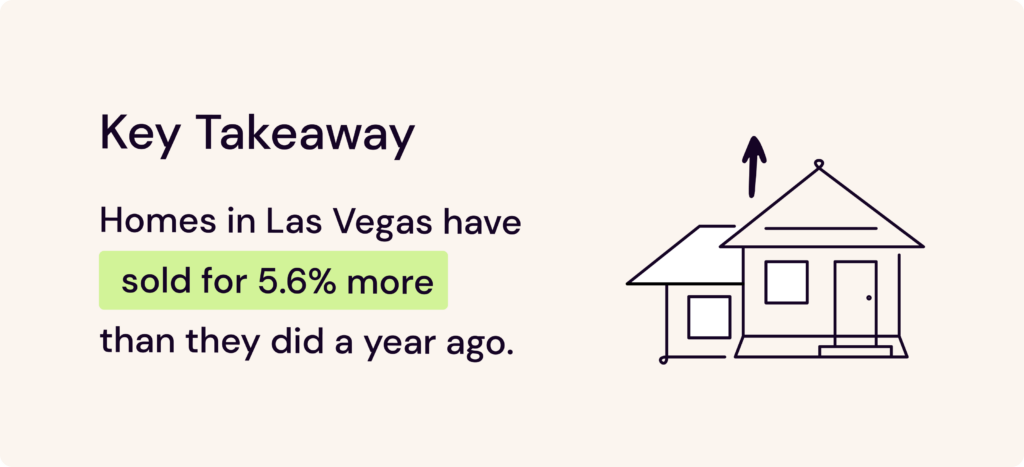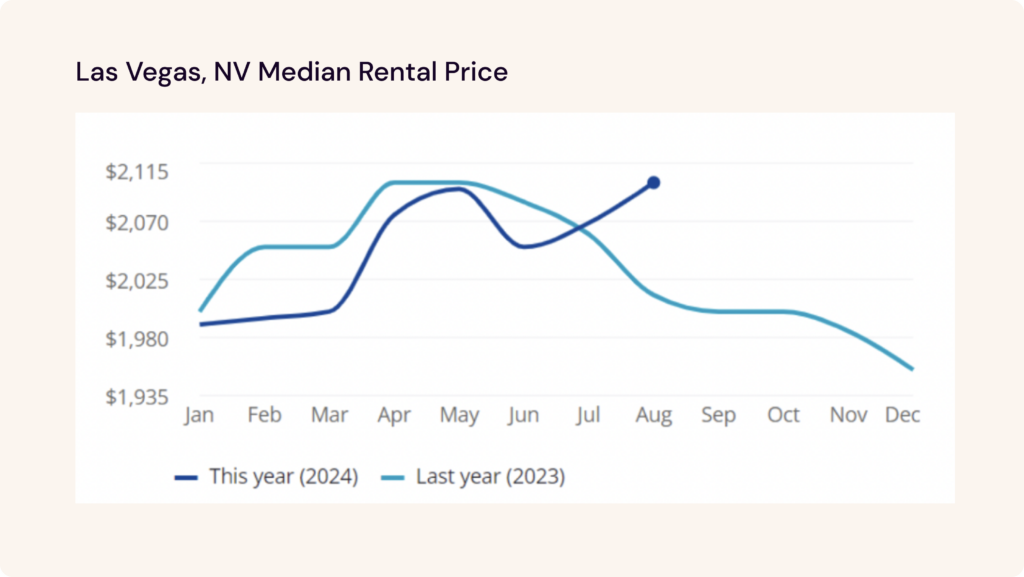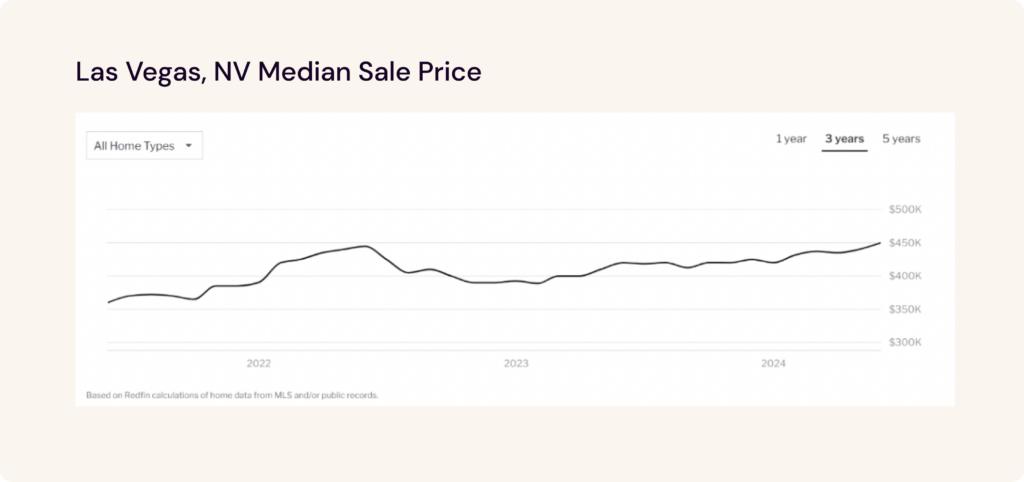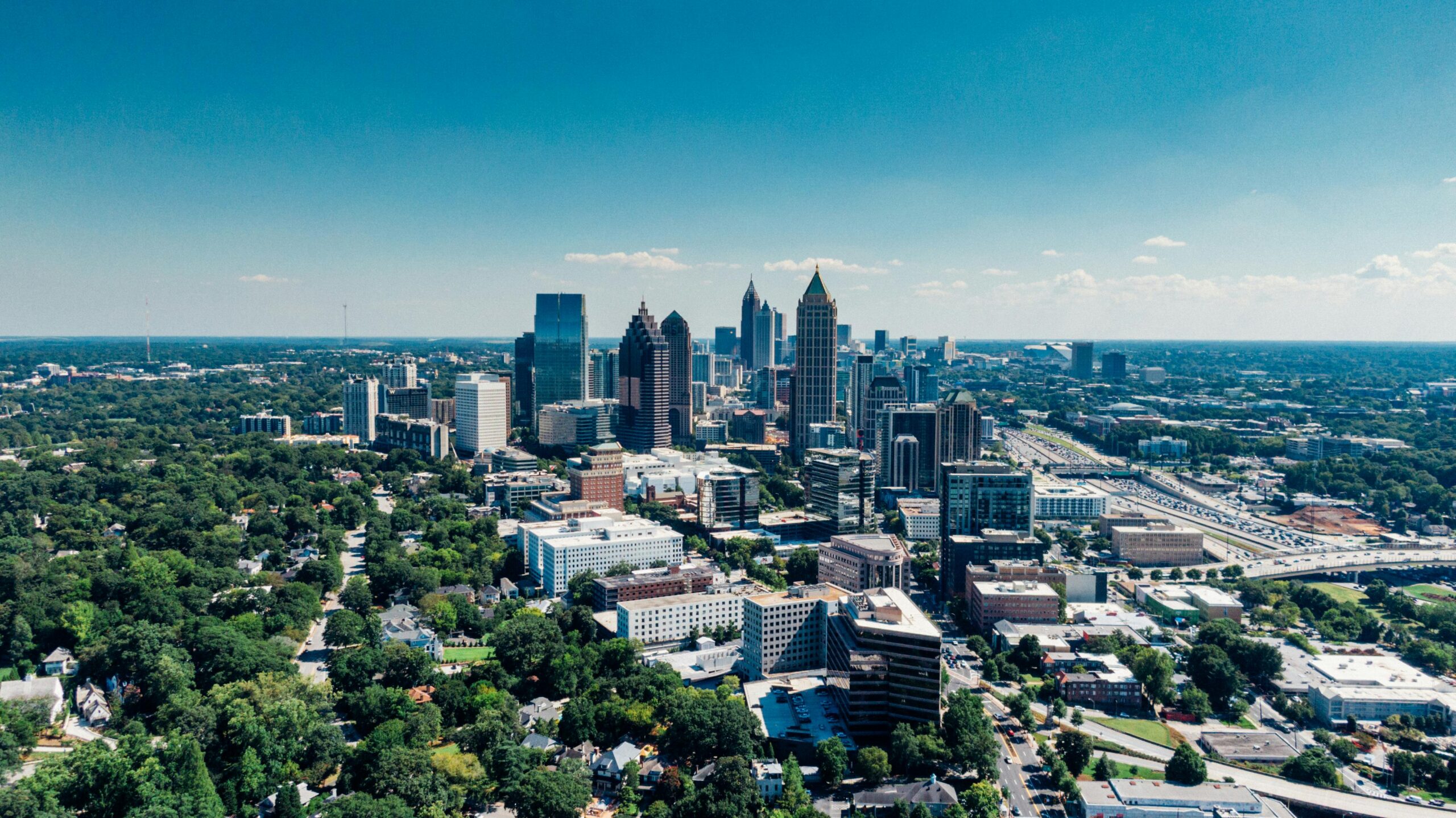
Las Vegas stands out as a unique real estate market in the United States, shaped by its vibrant entertainment-driven economy and a diverse, transient population. Unlike many other cities, Las Vegas experiences significant seasonal fluctuations in rental demand, influenced by its status as a top destination for tourists and conventions. These factors contribute to a dynamic rental landscape, where nearly half of the residents opt to rent rather than own. For property owners, this creates both opportunities and challenges, making effective property management crucial. Understanding the local market’s nuances, from the city’s economic drivers to the specific needs of its residents, is essential for maximizing returns and maintaining high occupancy rates. This blog post delves into the distinct aspects of managing properties in Las Vegas, offering insights and strategies for navigating this unique market.
Becoming a Property Manager in Las Vegas:
A Distinct Path
The path to becoming a property manager in Las Vegas involves understanding specific licensing requirements unique to Nevada. Unlike other states, Nevada requires property managers to hold a real estate license and a property management permit. This regulatory framework ensures that property managers are well-equipped to handle the complexities of the local market, including tenant laws and property maintenance standards. For those looking to enter the field, gaining experience in real estate and completing the necessary educational courses are essential steps.
Key Aspects of Property Management in Las Vegas
Lease Renewals and Retention Strategies
- Handling Rent Collection and Financial Management
Efficient rent collection is crucial for maintaining a steady cash flow. In Las Vegas, property management companies like Home365 leverage technology to automate payment processes, ensuring timely rent collection and accurate financial reporting. This not only benefits property owners but also provides tenants with convenient payment options. - Comprehensive Background Checks and Tenant Screening
Las Vegas attracts a diverse population, including transient residents (individuals who do not stay long-term in the same location). Conducting thorough background checks is vital to ensure the safety and reliability of tenants. Property managers in the city utilize comprehensive screening processes to verify tenants’ financial stability and rental history, minimizing the risk of problematic tenants. - Maintenance and Home Care Services
The desert climate of Las Vegas poses unique challenges for property maintenance, such as extreme temperatures and limited water resources. Home365 provides proactive maintenance services, addressing issues like HVAC upkeep and plumbing to maintain property value and tenant satisfaction.
5 Simple but Effective Ways to Secure Your Vegas Rental Property

Lease renewals are a critical aspect of property management, particularly in a city with a high rental turnover rate. Property managers in Las Vegas focus on building strong relationships with tenants, offering incentives for lease renewals and addressing tenant concerns promptly. By providing a seamless renewal process, companies can reduce vacancy rates and ensure long-term profitability for property owners.
Leveraging Technology for Efficient Management
Technology plays a pivotal role in modern property management. In Las Vegas, where the market is highly competitive, property managers use advanced software and digital platforms to streamline operations. This includes online portals for tenant communication, maintenance requests, and financial tracking. Home365, for instance, offers a comprehensive owner portal, allowing property owners to monitor their investments in real time.
Why Las Vegas is Unique for Property Owners
Las Vegas presents a unique blend of opportunities and challenges for property owners. The city’s dynamic economy, largely driven by tourism and entertainment, creates a dynamic rental market with a constant influx of potential tenants. Large-scale events and conventions can lead to seasonal fluctuations in rental demand, providing opportunities for higher rents during peak times. Property owners must be prepared to navigate these fluctuations and maintain their properties to attract and retain quality tenants. The diverse and transient population in Las Vegas also means that properties need to cater to a wide range of tenant preferences and needs, making the market both challenging and rewarding for property owners.
Understanding the Las Vegas Housing Market
Las Vegas presents a unique housing market characterized by a high demand for rental properties. With a growing population and a total of 256K housing units, the city is poised for continued growth. The median sale price in Las Vegas stands at $450K, a +7.2% year-over-year increase, which is notably higher than the national median home sales price of $442,525 and homes usually sell after 38 days on market. The median rent in Las Vegas, NV is $2,100.

Climate's impact on Las Vegas housing
Learn about natural hazards and environmental risks, such as floods, fires, wind, and heat that could impact homes in Las Vegas.
Flood Factor - Minor
1% of properties are at risk of severe flooding over the next 30 years
Fire Factor - Major
34% of properties are at risk of wildfire over the next 30 years
Wind Factor - Minimal
Las Vegas has minimal risk of severe winds over the next 30 years
Heat Factor - Severe
94% of properties are at severe risk of heat over the next 30 years
Post-Pandemic Stabilization in the Las Vegas Rental Market
The Las Vegas rental market is returning to stability after a pandemic-driven surge in prices. During the pandemic, low interest rates and increased demand for larger living spaces caused rents and home prices to spike. Now, as the market normalizes, prices are aligning closer to pre-pandemic levels. Despite this correction, Las Vegas remains a strong housing market with growth potential and relative affordability compared to other major cities.




